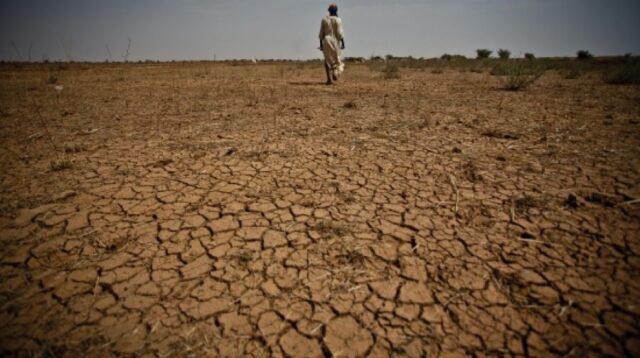
…US$17.4 billion climate-related private capital inflows into Africa between 2012-2022
…Clean Energy & Tech investments account for 41% of deal volume
…49% of private climate-related investments concentrated in tech-enabled verticals
THUR, MAY 25 2023-theGBJournal |Today the African Private Capital Association (AVCA) and the Tony Blair Institute for Global Change (TBI) have announced the release of the Climate Financing in Africa: Strategies for the Future report, a new study outlining the current landscape of investment in building Africa’s climate resilience.
The comprehensive report examines the categories of, investors in, and capital deployment strategies present in Africa’s climate finance ecosystem. It shines a light on priorities and long-term opportunities for climate-smart investing on the continent, contextualised by best-in-class initiatives.
The report identifies the gaps in existing policy frameworks to enhance private sector participation in climate finance, emphasising how strengthening of institutional capacity, availability of data and climate target alignment with international donors can facilitate greater inflows of climate finance to the continent.
Within the report, private investors share recommendations for how the industry can advance efforts in building climate resilience, from better management of climate risks and opportunities, to developing robust frameworks to monitor investment progress.
Contextualising Climate Financing In Africa
As the report underscores, Africa’s climate financing is primarily comprised of public funds, which contrasts the configuration in developed markets. Inflows into Africa in 2019/2020 highlights this. Governments, development aid agencies and development finance institutions (DFIs), and the private sector contributed US$6.7 billion, US$16.9 billion and US$3.4 billion respectively.
While African countries are currently amongst the most vulnerable to the climate crisis, their response prioritises emissions reductions over defence mechanisms to extreme weather events. The report finds, going forward, 66% of Africa’s climate funding will need to be channelled into climate mitigation, 24% into adaptation and 10% into solutions that address both.
Systematic Challenges Are Holding Back Progress
The three main areas restricting green investments across Africa, as outlined by the report, are:
-Institutional governance gaps: conflicting mandates between national institutions and climate agencies, combined with weak regulatory framework have led to a limited capacity to design bankable projects and monitor climate change dynamics, and a lack of mechanisms to coordinate climate change action plans.
-Insufficient modelling data: Africa is significantly underrepresented in climate change research, with only 3.8% covering African issues and 0.55% channelled into African institutions. This disparity has led to a significant lack of data which limits policy formation and private sector participation.
-A weak financial sector: underdeveloped financial markets across the continent have led to a lack of instruments and architecture, such as green banks and national climate funds, needed to support green finance and leverage Africa’s resources.
Africa’s Private Climate Funding Landscape
Private capital investment into Africa’s climate adaptation and mitigation efforts have witnessed a near four-fold increase in the preceding decade. The report notes 822 private climate-related deals valued at US$17.4 billion were made between 2012 and 2022.
-Venture capital is the dominant asset class, representing 63% of deal volume in 2022, followed by private equity (16.5%), private debt (13.5%) and infrastructure (7%) deals.
-Despite 49% of climate-related private capital investments that took place in Africa between 2012 and 2022 being in technology or tech-enabled companies or projects, Africa attracts just 0.2% of climate-tech investments globally.
-Significant investor interest in Clean Energy and Tech culminated in 333 deals worth US$14 billion (81% of private capital deal value) in the decade to 2022; Climate Solutions witnessed 251 deals completed worth US$2.3 billion; and Low Carbon accounted for 96 deals worth US$0.3 billion – the lowest but growing at a CAGR of 23%, between 2002 and 2022.
-Utilities was the leading sector by deal value, attracting 84% (US$14.6 billion) of capital. It was also the most active sector by deal volume (42%), followed by Information Technology (18%), and Consumer Discretionary (13%).
-Investments in Utilities are dominated by renewable energy deals with solar as the major player, attracting 49% of deal activity by virtue of interest in its utility scale projects to decentralised mini-grids.
-This ultimately drives investment in the Information Technology sector in which manufacturing of semiconductors – a critical component in renewable energy technology – accounts for 55% of deal activity, capitalised by venture funding.
-Geographically, East Africa has experienced the largest deal volume, with 32% of deals struck in the region, spearheaded by Kenya. West Africa witnessed the highest inflows with 25% of all green capital channelled into the region, spurred by a series of investments totalling US$2.7 billion in Ghana. Strong performance in South Africa contributed to Southern Africa attracting 18% and 19% of deal volume and value respectively.
Opportunities and Barriers to Climate Financing in Africa
The AVCA and TBI survey of private sector climate investors revealed:
-82% of investors see a strong business case and sufficient financial incentive for climate investments.
-The most attractive sectors for climate investment are renewable energy (71%); agriculture (47%); transport (35%).
-Only 6% consider Africa to have high investment readiness to leverage climate resilient investment.
-A lack of large bankable investment opportunities (71%), a high risk to return profile (53%), and unclear climate policy objectives at a national level (41%) are the three largest barriers to private investment.
-Climate risk assessment is an increasingly prevalent part of fund and investor considerations.
Strategies Striving For Greater Green Investment
The report also compiles insights from private investors at the forefront of Africa’s transition to a more sustainable economy, who share recommendations across three main categories:
-Understanding climate risks and opportunities: practical actions fund managers can take to better understand and address climate related risks at the firm level, at the portfolio level, and across target sectors.
-Climate risk assessment and portfolio management: recommendations on how fund managers can integrate climate assessments in their portfolio management processes.
-Climate, policy, internal alignment and goal setting: leading practice for the cross functional integration of climate considerations into investment processes as well as the organization’s structure, values and human resources
In addition to ensuring rigorous climate risk and opportunity assessments are embedded in private capital investment frameworks, recommendations for public sector included:
-Closing gaps relating to institutional capacity and knowledge within the government, which will build a stronger technical foundation for decision making and encourage cross-ministerial collaboration
-Outlining clear pathways to a just transition will deepen government capacity to employ green budgeting, an understanding of how much public finances are dedicated to what green initiatives
-Considering it is such a significant source of climate-related funding, governments should aim to align official development assistance (ODA) with innovative and inclusive green growth opportunities
Commenting on the findings of the report, Nadia Kouassi Coulibaly, Head of Research at AVCA said, “The climate financing trajectory is certainly on the right path but the urgency of the crisis across Africa demands it is accelerated. The areas in need of support are evident and stakeholders require a clear development path. A clear plan will help realise their bold but necessary commitments to strengthening Africa’s climate resilience and mobilise greater private capital participation.”
Twitter-@theGBJournal|Facebook-the Government and Business Journal|email:gbj@govbusinessjournal.com| govandbusinessj@gmail.com









